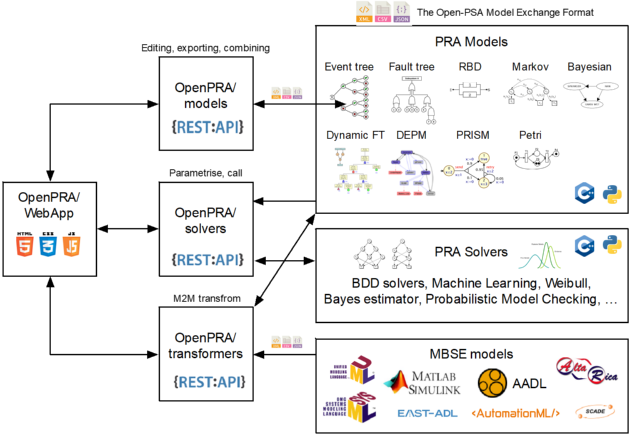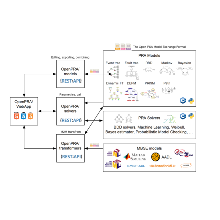IAS, together with international partners, has started the OpenPRA project. We encourage IAS students to participate in the project in the frame of their research, bachelor, or master theses. Available topics will appear on our website. This is an opportunity (i) to collaborate with other students from partner universities, (ii) improve your software development skills in C++, Python, and the web stack, (iii) design and implement analytical software tools, (iv) attend several relevant seminars.

Probabilistic Risk Analysis (PRA) is a mandatory procedure for all safety-critical domains, including transportation, industrial automation, medical devices, energy, and many more. PRA exploits well-known methods for evaluating the dependability and resilience properties of technical systems. These methods usually include classical Event trees, Fault trees, Bayesian networks, Markov chains, and their numerous extensions and combinations. Professional analytical toolsets, available in the market, support only a limited set of methods and, in most cases, cannot adequately describe sophisticated failure scenarios of modern, highly dynamic, autonomous, and intelligent Cyber-Physical Systems. R&D teams propose advanced analytical methods and tools. However, they are usually available in the form of proof-of-concept prototypes and only suitable for academic case studies. The OpenPRA initiative aims to provide a unique platform for integrating the multiple PRA methods and tools into a holistic, easy to use, and highly customizable framework.
OpenPRA goals:
- Open source and free software supported by international community
- Unified analytical environment, hybrid PRA models
- Collection of ready to use PRA models, solvers, transformers
- Automatic generation of PRA models from MBSE models.
- User-friendly web interface, easy to extract risk insights
- Collection of examples from different domains, PRA guidelines
- Performance, scalability, and accuracy benchmarks
Partners:
University of Stuttgart (DE), North Carolina State University (US), Technische Universität Dresden (DE), and Ufa State Aviation Technical University (RU).
Contact person:


